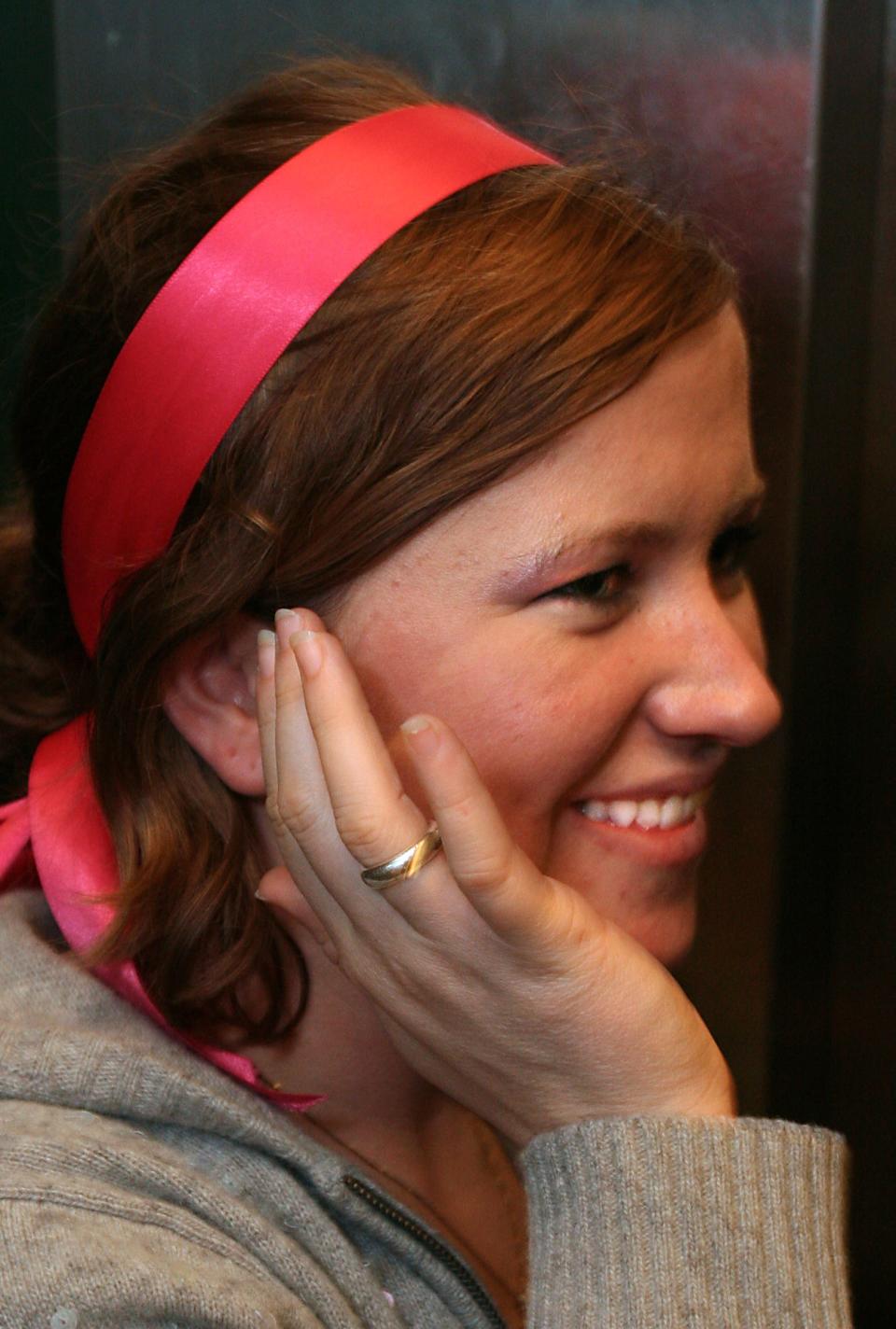Same prosecutor, same charges: Retrial begins for man who killed Barley's server in 2008
More than 10 years after a Knox County jury found Micah Ross Johnson guilty of the brutal murder of Carrie Daugherty, he is back in a Knox County courtroom this week, facing the same prosecutor on the exact same charges.
The death of the 24-year-old Barley's Taproom employee rocked the community in 2008. Legal twists and turns over the past decade included the state Court of Criminal Appeals overturning Johnson's 2012 conviction and granting him a new trial.
The appeals court ruled last year that Johnson's attorney was ineffective because he damaged Johnson's ability to use an insanity defense.
So this week, at age 36, Johnson is once again being tried for first-degree premeditated and intentional murder, first-degree felony murder, especially aggravated kidnapping and especially aggravated robbery.
"This is a case ... about a young lady who loved life, who was outgoing, who was energetic, who loved her family, who loved her friends," said Assistant District Attorney General TaKisha Fitzgerald in her opening statement April 26.
Johnson's attorney, Gregory Isaacs, said the jury would hear clear and convincing evidence that his client "had a mental illness that was severe, that was serious, that was devastating, that was producing delusional behavior."

Isaacs told the jury that problems started long before the murder when the star student began exhibiting signs of mental illness his sophomore year at UT. Johnson had a serious psychotic break in late 2007 and was committed to inpatient treatment.
After Johnson was discharged against medical advice, Isaacs argued, he hid his illness.
But Fitzgerald, the prosecutor, told the jury they shouldn't buy the defendant's insanity defense and should stick to the facts of the case.

What happened to Carrie Daugherty?
Daugherty, a former University of Tennessee student, was originally from the Chattanooga area.
She knew Johnson, who was 21 at the time and also a former UT student, because he was dating her roommate. He had been expelled after he was charged with aggravated assault related to the beating of a fellow student.
On March 18, 2008, Johnson spent time with the two women at their home until he left to get ready for work. Daugherty left later that day to work the closing shift at Barley's.
Around 12:30 a.m. March 19, Daugherty got off work. A little over an hour later, a neighbor called 911 to say she saw a woman pull up in an SUV, then she saw a man hit the woman in the head with a rock and drag her across the yard while continuing to strike her.
At Johnson's first trial, investigators testified that after he hit Daugherty in the head with a brick, he grabbed a shovel and stabbed her with it. He then strangled her with a rope in the attack, which lasted over 10 minutes.
After killing Daugherty, prosecutors said Johnson returned to the house where he lived with his father to shower, change clothes and put his bloody clothes in a bag.
He then left the house through a window, carrying the bag, and pulled $500 in cash from an ATM. He fled to Georgia but later returned to Tennessee.
At trial, credibility of expert witness damaged, insanity defense discounted
Johnson’s first trial got underway in November 2011. It had been more than a decade since a jury was asked to consider insanity as a defense in a Knox County case, a reporter covering the trial noted.
It was never in dispute that Johnson killed Daugherty. What was at issue was his insanity defense.
In Tennessee, attorneys must provide “clear and convincing” evidence the defendant, as a result of a severe mental disease or defect, was unable to appreciate the wrongfulness of his acts. The prosecution maintained Johnson’s actions after the murder showed he knew he had done something wrong.
A defense witness, psychiatrist Dr. Keith Caruso, was critically questioned about the initial draft of his evaluation where Johnson presented a version of the crime that was different from previous versions. It showed he knew who he was attacking and why. Johnson then recanted that story and told Caruso he was trying to appear less crazy.
How that revelation was handled by Johnson’s defense ended up winning him a new trial this year. After the confusion over Caruso's report, the jury found Johnson guilty on all counts of first-degree murder, robbery and kidnapping. He was sentenced in February 2012 to life plus 50 years.
After the trial, Isaacs took over representing Johnson and eventually won a reversal of his conviction, with the appeals court noting, “Lead counsel maintained that he forgot about Dr. Caruso’s draft report. The information contained in the May 2009 report was damaging to the petitioner's defense, and trial counsel did nothing in advance of trial to mitigate that damage.”
Johnson has been out of custody on a $1 million bond since he was released last June.
Liz Kellar is a public safety reporter. Email lkellar@knoxnews.com. Twitter @LizKellar.
Support strong local journalism by subscribing at knoxnews.com/subscribe.
This article originally appeared on Knoxville News Sentinel: Retrial begins for man convicted of killing Knoxville bartender in 2008

